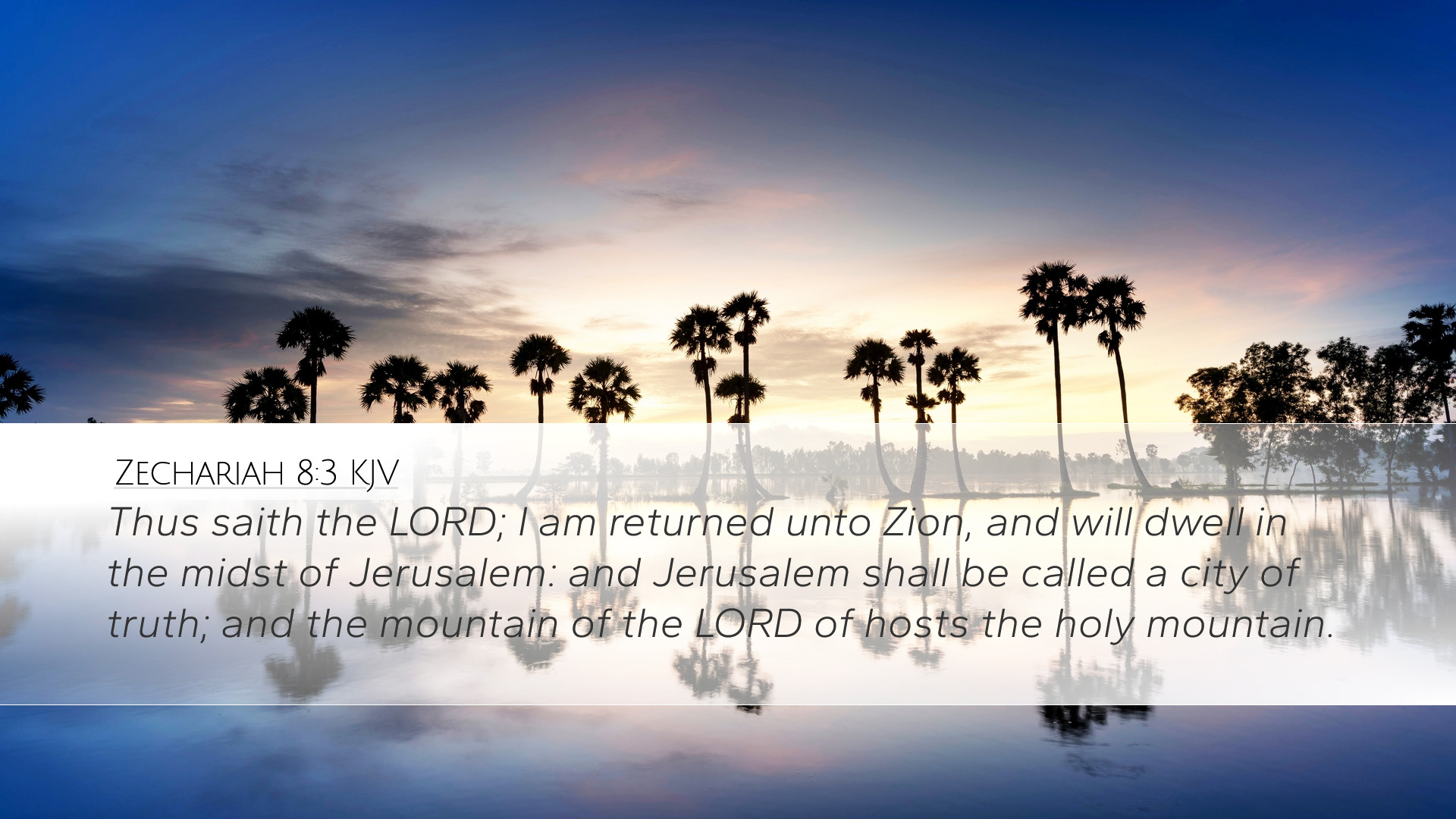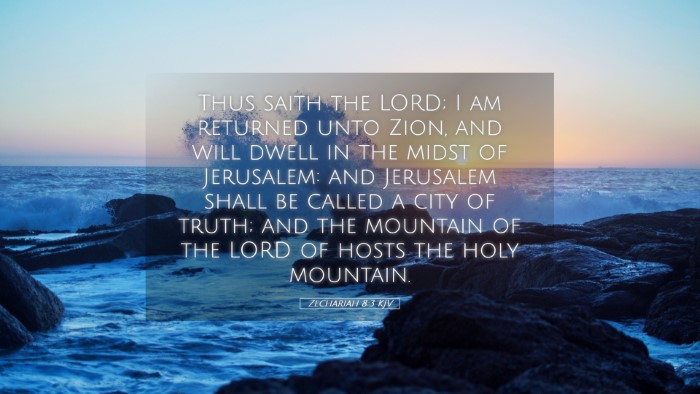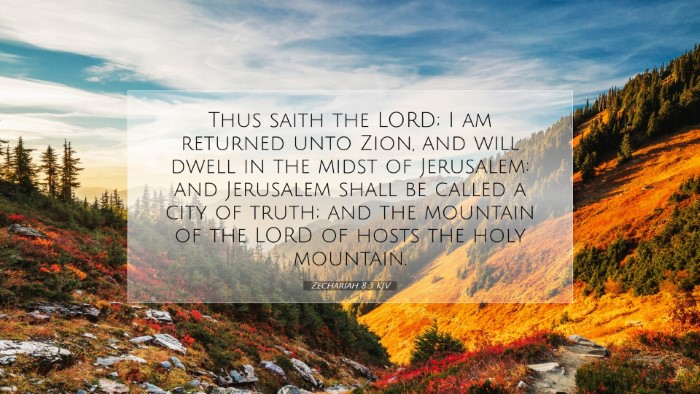Commentary on Zechariah 8:3
Bible Verse: "Thus saith the LORD; I am returned unto Zion, and will dwell in the midst of Jerusalem: and Jerusalem shall be called a city of truth, and the mountain of the LORD of hosts, the holy mountain."
Introduction
This verse from the book of Zechariah encapsulates a profound promise from God regarding His presence and the restoration of Jerusalem. It speaks to the themes of divine fidelity, the establishment of truth, and the sanctity of God's chosen city. Renowned public domain commentaries by Matthew Henry, Albert Barnes, and Adam Clarke provide valuable insights into this passage, shedding light on its theological significance and historical context.
Theological Insights
Divine Return and Presence
Matthew Henry emphasizes that God's declaration, "I am returned unto Zion," signifies His active involvement in the lives of His people. Unlike prior judgments and periods of exile, this return symbolizes restoration and divine favor. The act of God dwelling in the midst of Jerusalem represents an unbreakable commitment to His covenant people.
The Significance of Jerusalem
Albert Barnes elaborates on the importance of Jerusalem as not only a geographical location but also a spiritual center. The renaming of Jerusalem as a "city of truth" conveys the notion that truth will prevail in those who dwell there. God's omnipresence assures that the city's inhabitants will embody truth and righteousness.
The Holy Mountain
Adam Clarke notes that the phrase "mountain of the LORD of hosts, the holy mountain" points to the symbolic nature of mountains in biblical literature. Mountains often represent stability, authority, and nearness to God. This depiction reinforces the idea that Jerusalem, as God's chosen city, is a place of spiritual safety and divine holiness.
Historical Context
During the time of Zechariah, the Israelites had returned from Babylonian exile and were facing various challenges in their efforts to rebuild the temple and restore their community. The assurances provided in this verse serve not only as encouragement but also as a prophetic declaration of hope for a future where God's presence would be universally recognized within Jerusalem.
Restoration After Exile
Matthew Henry observes that Zechariah's prophecies arose at a pivotal moment when the Israelites were struggling with fear and disappointment. The remark that God would dwell among them offered solace and the promise of divine support in rebuilding their lives.
Embodying Truth
Barnes interprets the phrase "city of truth" as indicative of a transformative process. The return to Jerusalem is a return to values aligned with God's character, ultimately leading the people toward a society governed by truth, justice, and righteousness—a compelling vision for any community seeking to reflect God's glory.
Practical Applications
For modern believers, the message of Zechariah 8:3 remains relevant across various dimensions of faith and practice.
- Understanding God's Commitment: The assurance of God's return can inspire faithfulness and trust among believers, affirming that they are never abandoned even amidst trials.
- The Call to Truth: With Jerusalem defined as a "city of truth," followers of Christ are urged to embody integrity and honesty in their personal and communal lives.
- A Holy Community: Recognizing the spiritual significance of being part of a holy community encourages believers to cultivate environments where God's presence and holiness are honored.
Conclusion
In Zechariah 8:3, God reveals His intentions to restore and dwell among His people. The insights from Matthew Henry, Albert Barnes, and Adam Clarke enrich our understanding of this promise, shedding light on God's unwavering commitment to His covenant community. As modern-day believers, the lessons from Jerusalem's restoration invite us to embrace truth, seek God's presence, and actively participate in the establishment of a just and righteous society.


